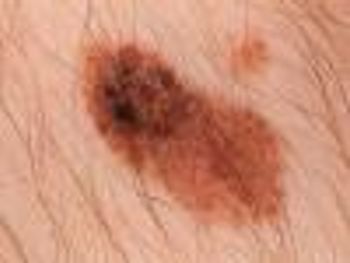
Atezolizumab was previously granted Breakthrough Therapy Designation for NSCLC in February 2015.

Atezolizumab was previously granted Breakthrough Therapy Designation for NSCLC in February 2015.

Low oxygen conditions encourage some cancer stem cells to multiply.

Recent advances and updates in oncology and cancer drug development.

Experimental drug could may lead to new treatments for AML, lung cancer, brain cancer, and melanoma.

Only 20% of lung cancer patients show a response to current immunotherapeutic antibodies.

Study finds that manufacturers need to develop a new approach to engaging oncologists.

Top stories of the day from across the health care landscape.

SAMMSON gene thought to play an important role in the etiology of melanoma.

Combining drug trametinib with a superagonist can stimulate activity while preserving the cancer-blocking effects of the treatment.

Plant produces compounds that treat cancer, arrhythmia, and other medical problems.

New technique could soon move to clinical trials in prostate cancer.

Individualized approach allows for creation of widespread models of patient-specific tumors.

DNA screening technology up to 10,000 times more sensitive than current tests for cancer and HIV.

Human epidermal growth factor receptor linked to success of chemotherapy.

Bright white light therapy shows treats depressive symptoms in cancer patients.

Clinical benefit of 3 to 8 months found in some patients who received drugs that targeted tumors in the P13K/AKT/mTOR pathway.

Sulforaphane, which occurs naturally in several cruciferous vegetables, can change the activity of endogenous enzymes.

Recurrence Score test may help some women with breast cancer be spared of chemotherapy without experiencing disease progression.

Chronic CIPN is a common side effect of chemotherapy that appears a month after treatment for cancer.

Recent advances and updates in oncology and cancer drug development.

Trioxacarcins disrupt cancer cell replication by binding and chemically-modifying genetic material.

Mucus can form a shield around cancerous cells to protect from chemotherapy drugs.

Mesothelioma is resistant to available drugs, requiring the need for new treatments.

Low levels of a specific protein in colorectal cancer offers potential treatment target.

Gene activity in lung tumors offers the potential to respond to chemotherapy.

Evista is typically given to women after menopause to treat and prevent osteoporosis and reduce the risk of invasive breast cancer.

Kinase inhibitors sorafenib and sunitinib found no more effective than placebo preventing disease recurrence after kidney tumor removal surgery.

Learning what doesn't work in the treatment of cancer still offers valuable insight.

Biomarkers help predict viable candidates for successful chemotherapy treatment for stage II colon cancer.